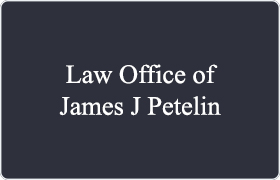Sacramento Juvenile Law Lawyer, California
Sponsored Law Firm
-
 x
x

Click For More Info:
-
Law Office of James J Petelin
1550 Humboldt Road, Suite 4 Chico, CA 95928» view mapDivorce & Family Law Effective, Client-Focused Representation
James Petelin is a practicing attorney in the state of California who focuses on Family Law.
800-943-9701
Nickolaus Charles Knight
Other, Environmental Law, Juvenile Law, Personal Injury
Status: In Good Standing *Status is reviewed annually. For latest information visit here Licensed: 18 Years
Rachel Monique Raymond
Other, Family Law, Juvenile Law, State Government
Status: In Good Standing *Status is reviewed annually. For latest information visit here Licensed: 21 Years
Mark Anthony Ambrose
Juvenile Law, Estate, Divorce & Family Law, Elder Law
Status: In Good Standing *Status is reviewed annually. For latest information visit here Licensed: 36 Years
Christina Anne Milburn
Juvenile Law, Other
Status: In Good Standing *Status is reviewed annually. For latest information visit here Licensed: 22 Years
Jennifer Capozzo Smith
Other, Juvenile Law
Status: In Good Standing *Status is reviewed annually. For latest information visit here Licensed: 18 Years
Brenda Rochelle Dabney
Juvenile Law, Government, Lawsuit & Dispute, Other
Status: In Good Standing *Status is reviewed annually. For latest information visit here Licensed: 24 Years
Carolyn V Kemper
Juvenile Law, Other
Status: In Good Standing *Status is reviewed annually. For latest information visit here Licensed: 33 Years
Katherine Michelle Mcloughlin
Juvenile Law, Other
Status: In Good Standing *Status is reviewed annually. For latest information visit here Licensed: 31 Years
Theresa A Ravandi
Administrative Law, Juvenile Law, Other
Status: In Good Standing *Status is reviewed annually. For latest information visit here Licensed: 31 Years
Jennifer Katherine Magee
Juvenile Law, State Government
Status: In Good Standing *Status is reviewed annually. For latest information visit here Licensed: 35 Years
 James Petelin Chico, CA
James Petelin Chico, CA AboutLaw Office of James J Petelin
AboutLaw Office of James J Petelin Practice AreasExpertise
Practice AreasExpertise